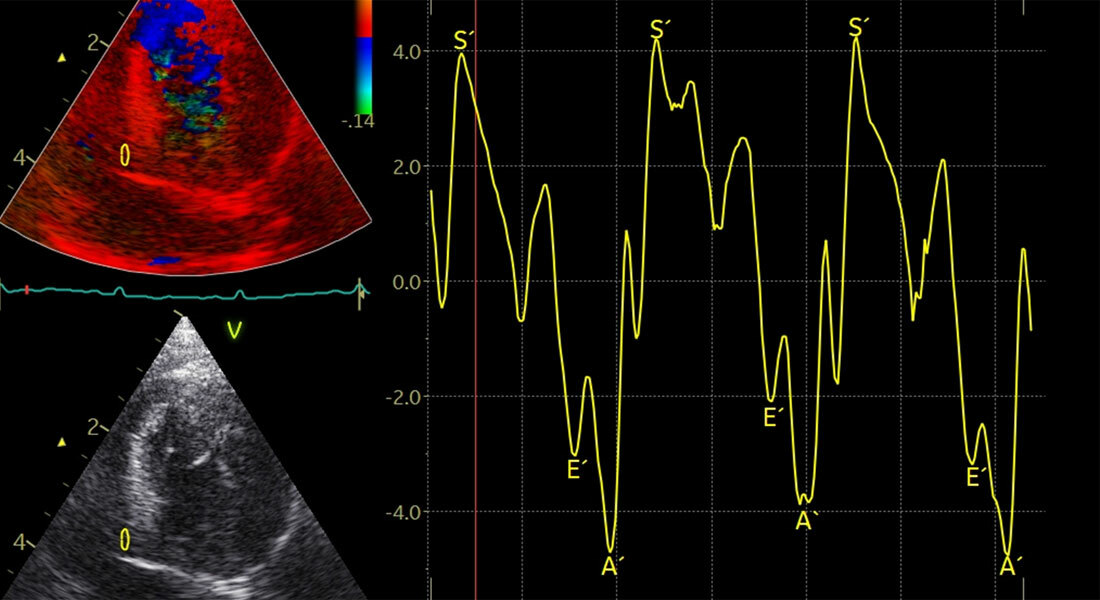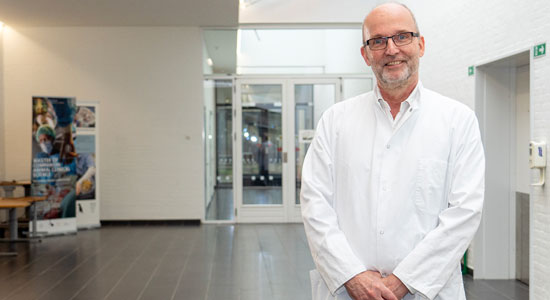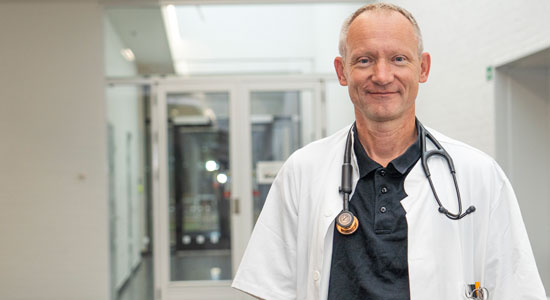Click here to read the curriculum in the course catalogue.
Course code: SCAM25029U
Diagnostic Cardiology
This course is a part of

The purpose of this course is to further develop the skills of the student within the discipline of veterinary cardiology in companion animals.
The level of prior knowledge and skills within cardiology from both veterinary candidate level and the first part of the master-education will further be developed into an advanced level.
In theory and by practical exercises to extend the participants knowledge, professional skills and competences within the subject of clinical companion animal cardiology at an advanced basic level.
Read more about the specialisation tracks and the Master's programme on the main page:
Course Directors on Diagnostic Cardiology

Jørgen KochProfessor |

Jakob WillesenAssociate Professor |
Course details on Diagnostic Cardiology
Dates and examination
Course dates 2026
13-17 April 2026
Course dates 2028
18-22 April 2028*
*Tuesday-Saturday due to national holiday
The course is available every second year.
Examination
Please find dates and details about the exam in the exam schedule.
Learning outcomes
Having completed the course, the student must be able to:
Knowledge
- Define, identify and discuss veterinary methodology and paraclinical tools in systematised reflective clinical decision making in companion animal clinical practice specifically within clinical cardiology.
- Explain the causes, hemodynamics and pathophysiologic mechanism involved in systolic and diastolic heart diseases/failure.
- Explain effects of anesthesia on the heart.
- Explain the role of biomarkers in heart diseases.
- Explain, reflect about and demonstrate overview of epidemiology and screening of heart diseases in companion animals.
- Give genetic counselling with those companion animal owners or breeders which animals are at an increased risk or either having a heritable disorder or of passing it on to their unborn offspring.
- Explain cardiopulmonary resuscitation – basic and advanced life support in companion animals.
- Give an insight into critically ill patients and hemodynamic disturbances.
Skills
- Apply the quantitative and qualitative methodologies such as performing and applying clinical cardiovascular examination and assess cardiovascular size and function and tools as well as master relevant skills such as intermediate clinical ECG, intermediate thoracic radiology and intermediate trans-thoracic echocardiography (i.e. understand physics, “knobology” and probe selection; practical and theoretical ultrasound sessions; M-mode and 2D diagnostics (anatomy/standard heart projections, principles); basic spectral and colour Doppler examination.
- Assess and interpret systolic and diastolic assessments.
- Make clinical decisions, arrive at a diagnosis and consider evidence based scientific approaches in order to plan and administer further appropriate diagnostics, patient therapy and management within the area of clinical cardiology.
- Communicate effectively in writing and pass on results to relevant parties.
Competences
- Evaluate companion animal diseases within clinical cardiology.
- Educate owners of chronic cardiovascular patients concerning long-term medical treatment.
- Work independently, take responsibility for, predict, prognosticate and make decisions within clinical cardiology at an advanced level.
Admission criteria
You must meet the following criteria to be admitted to this course:
- Hold a degree in Veterinary Medicine.
- Hold one of the following certifications:
- DVA Certificate in Small Animal Diseases (equivalent to the 4 compulsory courses of the Master of Companion Animal Clinical Science).
- Swedish / Norwegian / Finnish specialist in diseases of dogs and cats.
- Equivalent competences.
- Have a minimum of 2 years of relevant work experience from companion animal practice.
- Be proficient in English.
Find detailed information about the formal requirements for this course.
Read more about admission on the main page of Master of Companion Animal Clinical Science.
Tuition fees
EU/EEA citizens*
Single course student: 36,500 DKK
Master student: 33,000 DKK
Non-EU/EEA citizens
Single course student: 40,740 DKK
Master student: 37,240 DKK
Tuition fees include course materials and lunch/coffee. Books are not included in the tuition fees and must be purchased by the participants.
*Citizens of the EU, EEA or Switzerland is entitled to a subsidised tuition fee, due to EU legislation, hence the difference in price.
Location
University of Copenhagen
University Hospital for Companion Animals
Dyrlægevej 16
1958 Frederiksberg
Denmark
Contact
Christine Gulstad
Study Administration Officer
lifelonglearning@adm.ku.dk
Tlf: +45 35 32 12 73
